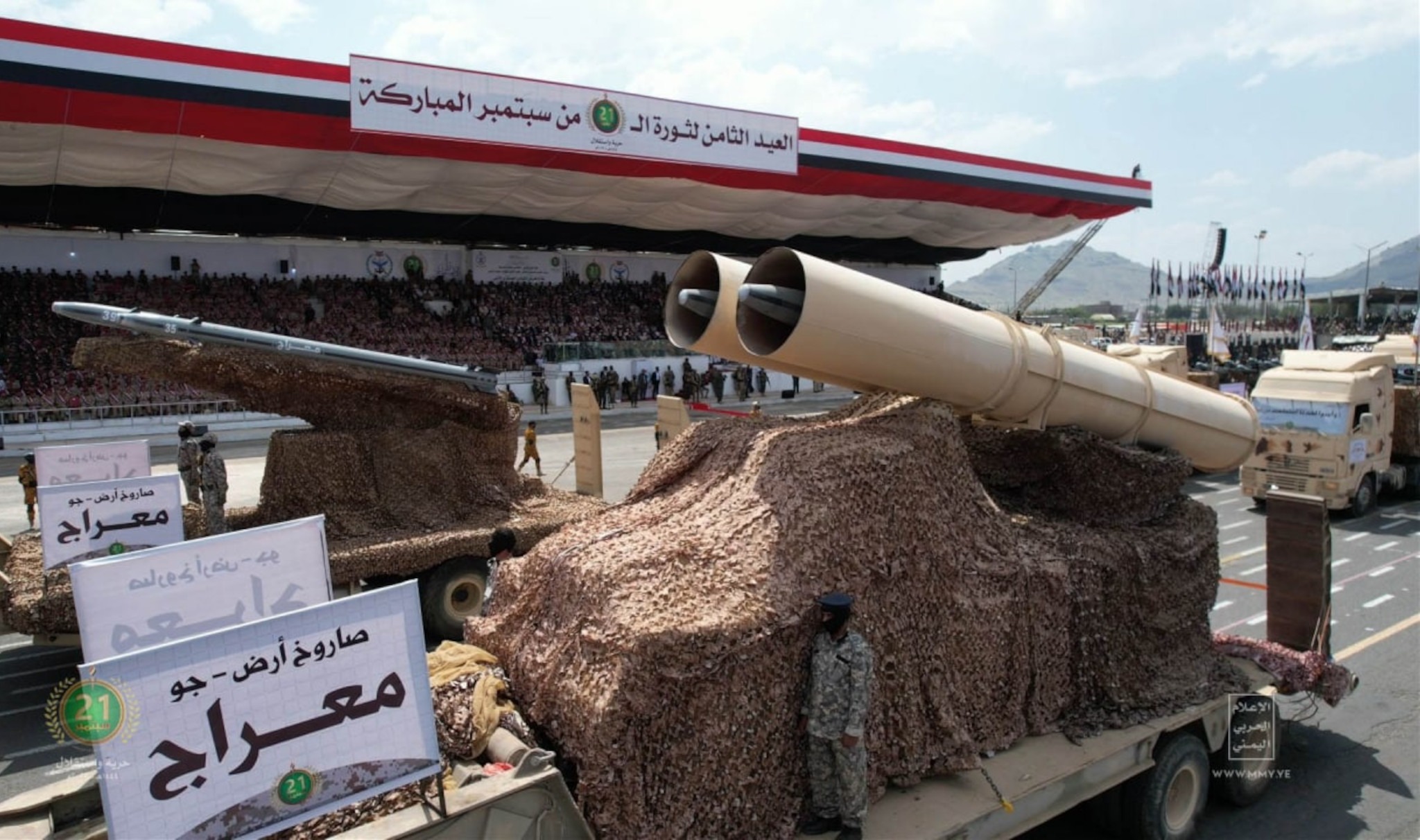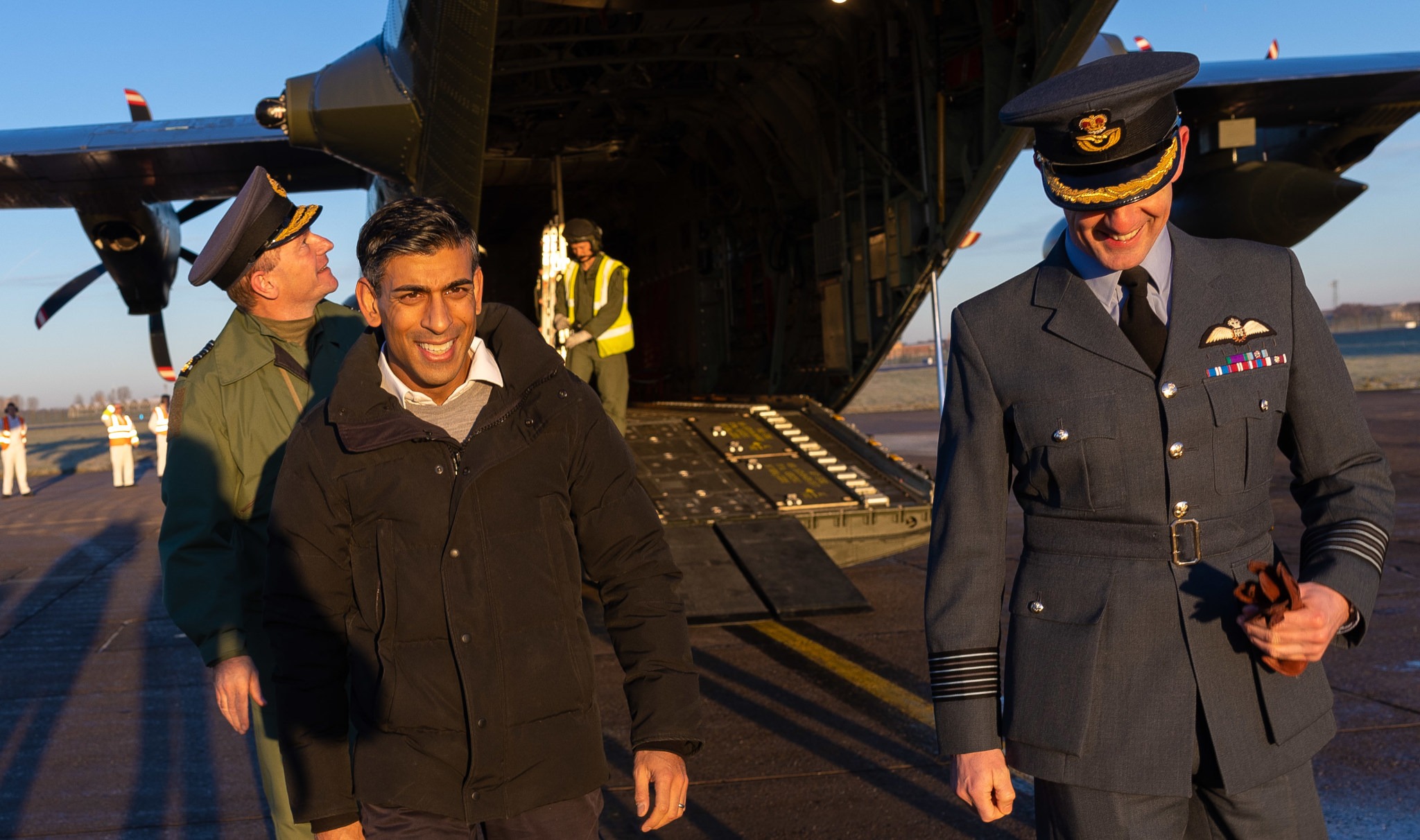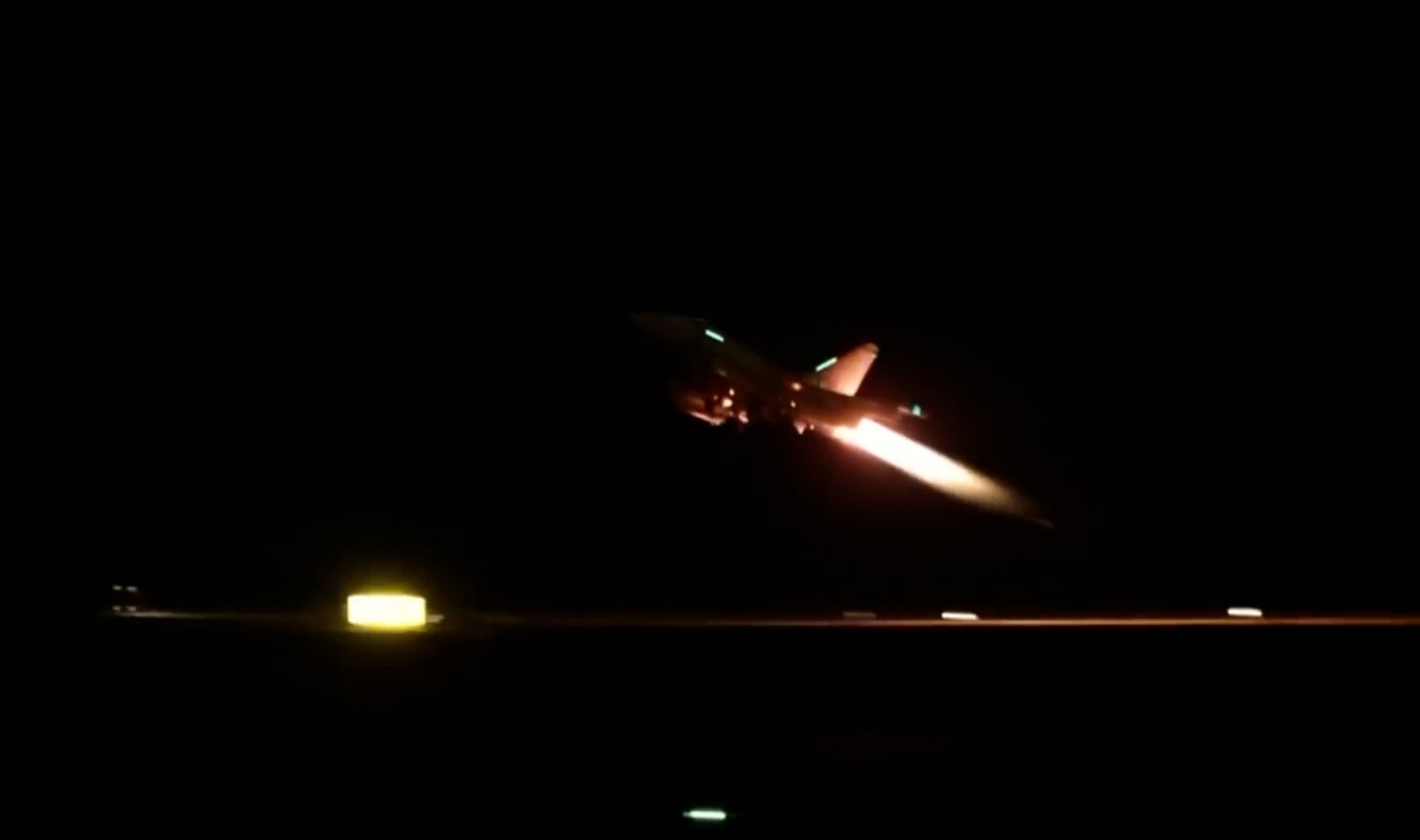British pilots took out surface-to-air missile (SAM) launchers near Yemen’s capital city last week to weaken the country’s air defence capabilities.
The choice of target undermines Rishi Sunak’s claim the raid was needed to stop an “imminent threat” to maritime traffic in the Red Sea.
It adds to concern that UK air strikes on Yemen might be in violation of international law and indicates mission creep has already set in.
Barrister Stefan Talmon, a professor of international law and visiting fellow at All Souls College, Oxford, told Declassified that targeting SAM sites “seems to be disproportionate”.
Alba MP Kenny MacAskill warned: “This is a lurch towards wider war.”
Britain’s former defence attaché to Yemen, Brigadier John Deverell CBE, believes the air strikes on Houthi positions are “wishful thinking” and “will not work”.
He urged the government to instead resolve the situation in Palestine, which the Houthis cite as their reason for blockading Israeli-linked ships.
First round
Following Houthi drone and missile attacks on merchant shipping and Western naval vessels in the Red Sea, Sunak ordered an initial round of air strikes in Yemen on 11 January.
The prime minister told parliament four days later: “I want to be clear that these were limited strikes. They were carefully targeted at launch sites for drones and ballistic missiles to degrade the Houthis’ capacity to make further attacks on international shipping.
“All 13 planned targets were destroyed. At the drone and cruise missile base in Bani, nine buildings were successfully hit. A further three buildings were hit at Abbs airfield, along with a cruise missile launcher caught in the open.”
Sunak reiterated: “It was limited, not escalatory. It was a necessary and proportionate response to a direct threat to UK vessels, and therefore to the UK itself.”
Second round
After those strikes failed to stop Houthi operations, Sunak ordered a second round on 22 January. He then told parliament: “Last night we hit two military sites just north of Sana’a, each containing multiple specific targets which the Houthis used to support their attacks on shipping.”
Sunak claimed the strikes were justified by an “imminent threat from the Houthis to UK commercial and military vessels”. The Ministry of Defence (MoD) said British jets had struck “8 Houthi targets in Yemen”, comprising an “underground storage site and locations associated with the Houthis’ missile and air surveillance capabilities.”
However on 24 January, defence secretary Grant Shapps provided parliament with more details, which suggested mission creep.
“The Prime Minister and I authorised a second wave of strikes,” Shapps said, “and destroyed eight targets near Sanaa airfield, taking out clusters of Miraj surface-to-air missile launchers and further degrading the Houthis’ ability to hold our seas to ransom.”
Shapps had, belatedly, disclosed that SAM sites were the sole target for the second round of strikes.
Mission creep
MacAskill was the only MP in the chamber to scrutinise this point, while most called for escalation with Iran.
“I think the Minister himself stated that surface-to-air missiles had been taken out,” MacAskill noted. “I do not claim to have any military expertise, but surface-to-air missiles do not seem to me to have any logical relation to the Houthis attacking shipping…This is a lurch towards wider war.”
The Scottish MP for East Lothian added: “My grandfather fought in world war one. My father fought in world war two. Both fought to try to ensure that their children would never have to fight in another conflict. I do not wish to see my children or grandchildren end up in world war three, yet there seems to be an almost ‘Dr. Strangelove’ tendency among some who are pulling us in that direction.”
His intervention came after MPs from Labour, the SNP, Liberal Democrats and the Foreign Affairs Committee chair Alicia Kearns supported the air strikes and ignored that the targets were surface-to-air missiles.
MacAskill then tabled a written parliamentary question to demand clarification. Armed forces minister James Heappey responded this week, confirming: “The eight targets comprised Miraj surface to air missile launchers, which posed a threat to the success of the coalition operation against the military facilities involved in the Houthi anti-shipping campaign.”
Video: Britain bombs Yemen’s capital Sana’a on 22 January 2024
Disproportionate
Professor Talmon, who had already questioned the legality of Britain’s initial air strikes, has expressed further concern about these revelations.
“It seems the UK’s interpretation of self-defence becomes ever more expansive,” he told Declassified. “Now the air strikes are no longer a response to a direct armed attack or threat of imminent armed attack on UK ships but a response to an undefined ‘persistent threat’.”
“Targeting surface-to-air missile launchers near Sanaa, ‘which posed a threat to the success of the coalition operation against the military facilities involved in the Houthi anti-shipping campaign’ seems to be disproportionate.
“The reference to a ‘persistent threat’ also indicates that the UK/US will continue their attacks on Houthi positions and, in order to protect their forces, pre-emptively destroy air defence capabilities and other military facilities.”
Targeting SAM sites was not a one off. On Wednesday afternoon, the US “struck and destroyed a Houthi surface-to-air missile prepared to launch.” The American military claimed “it presented an imminent threat to US aircraft.”
The Houthis are Yemen’s de-facto government. They control the capital and areas where the majority of people live. The US regards them as a terrorist group and the UK supports the internationally recognised government of Yemen, which is based in Saudi Arabia.
However, that government, which is effectively a Western client regime, did not authorise UK/US air strikes on Yemen. Only a handful of countries have backed the air raids.
Self-defence?
Following the first round of strikes, Reuters reported that “a diplomat who is aware of France’s position said Paris did not believe the attack could be deemed legitimate self-defence.”
British jets took off from Akrotiri, a Royal Air Force base on Cyprus, 1,500 miles from Sana’a. Cypriots have been protesting outside the base in response to the attacks on Yemen, calling for Britain to fully dismantle its colonial infrastructure on the Mediterranean island.
The UK Foreign Office has struggled to prove there was a particular threat from the Houthis to British vessels before the air raids began, beyond incidents involving HMS Diamond and a Cayman-flagged vegetable oil tanker, the Swan Atlantic.
The Houthis have responded defiantly to the air raids and begun targeting British ships more specifically. Last Friday, a ballistic missile struck the Marlin Luanda, which the Houthis described as a “British oil tanker”.
The ship’s UK-link is in fact rather tenuous, with a London registered operating firm that is ultimately owned in Luxembourg. It carried a cargo of Russian naphtha.
According to the Chatham House think-tank, the MoD is relying on the RAF to conduct the strikes on Yemen, because HMS Diamond “currently lacks the ability to attack land targets…Nor was a submarine available to launch cruise missiles.”
‘Won’t work’
Brigadier Deverell, who served as UK defence attaché in both Yemen and Saudi Arabia, believes the air strikes “will not work”. He told Declassified: “The belief that the US and UK can fire off a few missiles in the hope that the Houthis will stop and that our military action will destroy the Houthis’ capability to strike is wishful thinking.
“The strikes the UK and US are conducting are therefore really being done to satisfy our own governments, giving a sense that we are actually doing something – but without any great hope that the strikes will make a significant difference.
“One needs to go back to the core issue, which is Gaza. Whether or not the Houthis were attacking ships before the IDF invaded Gaza is largely immaterial. This is because the attacks by the Houthis have been significantly ramped up since then.”
Sunak has savaged MPs who share Deverell’s analysis, rebuking Labour’s Apsana Begum for giving “ammunition to our enemies” after she linked “our action against the Houthis with the situation in Israel-Gaza”.
Addressing this point, Deverell noted: “Although many commentators and politicians in the West prefer to deny a link with what is happening in Gaza, in my view that is an excuse on the part of our and the US government to avoid the need to put pressure on Israel to stop IDF operations in Gaza – which in any case are not achieving their stated objectives and are an affront to basic humanity.”
He added: “That also illustrates Western double standards. In my view our government’s failure to condemn in terms the IDF’s actions in Gaza means that we have forfeited the moral high ground that is the basis for criticising other countries’ human rights records in the future.
“As with some other adverse developments in the region, it goes back to the root cause – which is the Occupation of the Palestinian Territories and the failure by the West over many years to push hard for a Two State Solution.
“In the meantime, as always in places of conflict, innocent people suffer at scale. Yemen – a place and a people for whom, from my time there, I have a deep-seated affection – has yet to recover from the long war in which the US and the UK were complicit through the supply of weaponry to Saudi Arabia.
“In essence, Yemenis continue to suffer and we should not make it worse, especially since strikes on the Houthis are very unlikely to improve matters.”
The MoD declined to comment.




